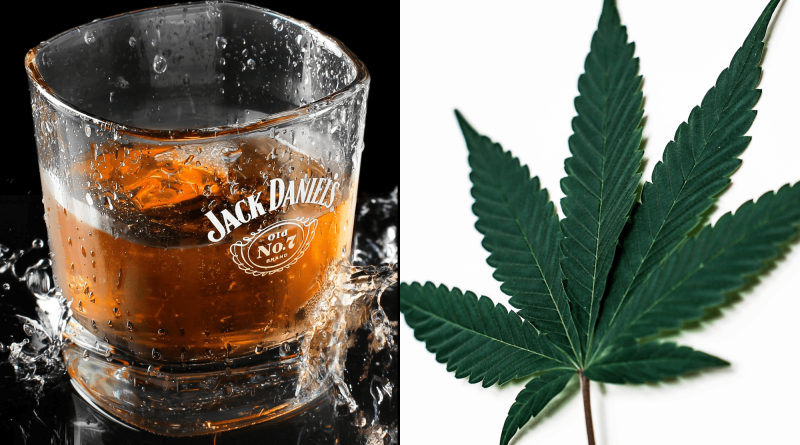Marijuana May Help Heavy Drinkers Cut Back On Alcohol, New Federally Funded Study Finds
From toxifillers.com with love
Marijuana use is linked to lower alcohol intake and diminished cravings in heavy drinkers, according to a new federally funded scientific paper.
The study, a full version of which was obtained by Marijuana Moment in a pre-proof form, found that “for some individuals who drink heavily, cannabis may serve as a substitute for alcohol,” adding that “craving reduction is a potential mechanism through which this could occur.”
The authors, affiliated with Colorado State University, the University of Colorado Boulder and the University of Colorado Anschutz Medical Campus, say the project is the “first study to test effects of legal-market cannabis on alcohol intake.”
They found that, on average, participants drank about 25 percent fewer alcoholic beverages after using cannabis compared to when alcohol was consumed alone. Noting the importance of the finding, they wrote that marijuana “continues to rank as the most widely used substance among people who drink alcohol.”
“Cannabis use was associated with a reduction in alcohol intake.”
For the clinical trial, scientists recruited 61 heavy drinkers who also use cannabis several times a week. Each participant completed two sessions in a mobile laboratory parked outside their homes—a workaround to federal restrictions on handling legal marijuana in campus labs. In one lab, they drank alcohol alone. In the other lab, they first used their own legal-market cannabis before drinking. In both sessions, participants received a standard “priming” drink and then had the opportunity to consume up to four more.
When the researchers broke the group down further, they found that 23 participants, called “substituters,” drank significantly less after cannabis use and reported a consistent drop in alcohol craving. Another 23 “non-substituters” drank the same amount or more, showing little change in craving. Fifteen abstained from drinking altogether during both sessions.
“Findings from this novel human laboratory study provide initial support for the idea that legal-market cannabis can serve as substitute for alcohol among some individuals who engage in heavy drinking,” they concluded, adding that “cannabis self-administration was associated with a significant reduction in number of drinks” participants consumed.
“Those who drank less after cannabis reported greater decreases in alcohol craving.”
While the results are promising, the authors warn about limitations to the study’s parameters. They note that marijuana was always consumed before alcohol, meaning the reverse order was not tested. The mobile lab, while an innovative way to avoid threatening federal funds for the universities, may not mimic real-world drinking settings. They also note that the sample was not broadly representative, comprising mostly white and male subjects.
The authors call for “future work to explore additional individual and contextual factors that may predict whether cannabis can serve as a substitute for alcohol,” noting the importance of studying clinical implications for recovery approaches among those who are not abstinent. With alcohol misuse remaining a leading cause of preventable death, researchers say this line of work could eventually inform harm reduction strategies.
This study preprint, submitted to the journal Drug and Alcohol Dependence and funded by the National Institutes on Health’s National Institute of Alcohol Abuse and Alcoholism, is part of a flurry of recent scientific studies on the effects of marijuana use as a way to curb or reduce drinking.
“Self-administering cannabis before alcohol significantly reduced alcohol consumption compared to when alcohol was offered without cannabis.”
In a study earlier this year, scientists at the University of Sydney published a paper investigating the theory that non-intoxicating cannabidiol could mitigate problematic drinking issues. The research, published in the journal British Journal of Pharmacology with funding from the Australian National Health and Medical Research Council, found that “CBD represents a promising candidate to reduce voluntary alcohol consumption.”
According to a federally funded study published in the journal Nature earlier this year, CBD has potential to treat alcohol use disorder by reducing withdrawal symptoms and lowering the risk of relapse while also providing neuroprotective effects. The results of that study “underscore CBD’s potential therapeutic utility for alcohol use disorder (AUD) and provide mechanistic insights into its actions,” they noted.
This also comes at a time when younger Americans are increasingly using cannabis-infused beverages as a substitute for alcohol—with one in three millennials and Gen Z workers choosing THC drinks over booze for after-work activities like happy hours, according to a new poll of 1,000 young professionals.


